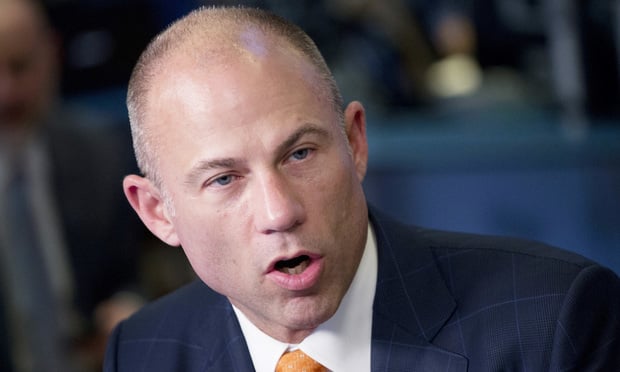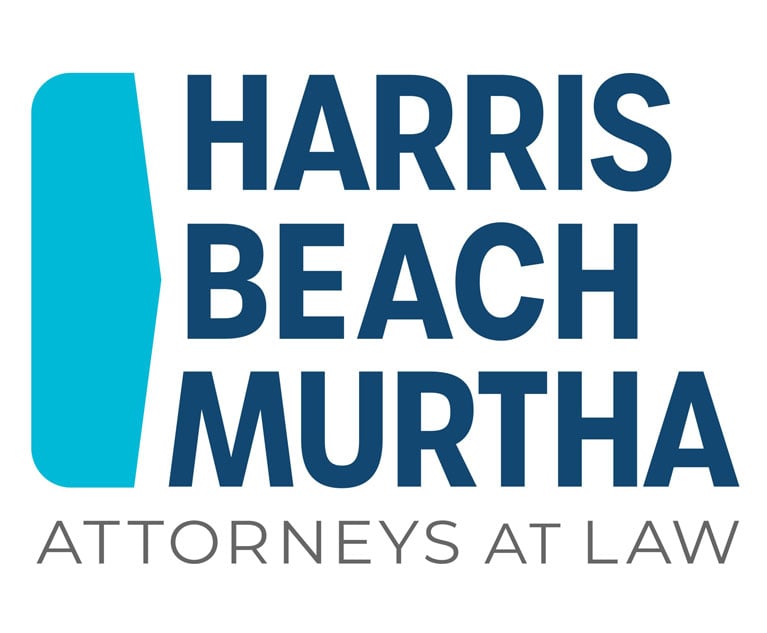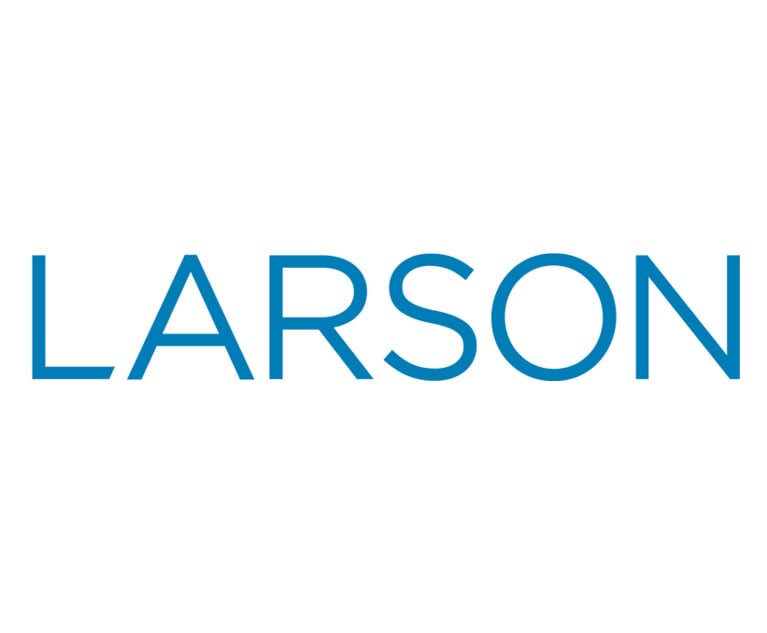Answering Critics, Avenatti Says Slaying Goliaths Is His Business Model
The California-based commercial litigation attorney and his own practice have racked up over $1 billion in verdicts in cases against some of the biggest companies and law firms out there. "I stand by the legal work we've done, and the results we've attained," he said.
May 14, 2018 at 07:40 PM
10 minute read

Last week, Rudy Giuliani—the former Manhattan U.S. attorney, New York City mayor, Republican presidential candidate, and, now, attorney for President Donald Trump—recently took aim at Michael Avenatti, attorney for Stephanie Clifford, the adult film star who uses the stage name Stormy Daniels.
“What do you think she's about,” Giuliani said, referring to Clifford, during an appearance on the Fox Business Network, “and her lawyer who's, you know, an ambulance chaser? Money, money, money, money.”
Avenatti did not take kindly to the allegation, offering up a typical cutting retort on Twitter about the only ambulance he's ever chased “is the one you are driving right now in a desperate attempt to save this presidency.”
In an in-person interview with the New York Law Journal at the Midtown Manhattan hotel he's staying at while in town, Avenatti, who's based in California, said Giuliani's suggestion couldn't be further from the truth.
“It's a derogatory term, and it's without any basis whatsoever, which is fairly consistent for Mr. Giuliani these days,” he said. “He's trying to label me as some unethical lawyer who's handling slip-and-fall cases, which couldn't be further from the truth.”
Avenatti may be many things—publicity-seeking, yes, as his dozens of appearances on television make clear. Aggressive, sure, which anyone who follows him on Twitter is aware. To critics he may seem an opportunist. To his supporters, he may be the person who brings down Donald Trump.
But one thing he wants to make clear he is not is an ambulance chaser.
“I believe you can judge the quality of an attorney by the opposition that they draw, and we routinely draw opposition by Skadden Arps, [Slate, Meagher & Flom]; Munger, Tolles [& Olson]; Latham & Watkins—some of the largest law firms in the world,” he said. “Our track record is incredibly good against those firms. If we were some ambulance chasers, we wouldn't have that track record against those law firms.”
'Davids versus Goliaths'
Last year, a jury provided him a $454 million verdict—the single largest in California that year, and the third largest in the nation, according to Avenatti—finding surgical gown manufacturers Kimberly-Clark and Halyard Health knowingly produced faulty garments that potentially exposed doctors to blood-borne viruses. The companies were represented by attorneys from King & Spalding at trial. The outcome earned him an appearance on “60 Minutes”—his second time on the news show.
The Kimberly-Clark verdict is currently being briefed on appeal to the U.S. Court of Appeals for the Ninth Circuit. Avenatti says he's handling the appeal.
That case is far more representative of Avenatti's background as a commercial litigator, and just the latest high-profile result he says belies Giuliani and other critics' attempts to diminish his stature as a practicing attorney.
Based on his start, Avenatti's path didn't point inevitably toward the legal world. He graduated from the University of Pennsylvania—he and Trump are alumni—with a political science degree. He spent his time before and during law school working on political campaigns for Rahm Emanuel's firm for both Republicans and Democrats, he points out.
A pre-law emphasis as an undergrad led him to earning a law degree from George Washington University where he graduated first in his class.
“I decided to go to law school because I thought I could be a good advocate for the Davids versus Goliaths,” he said.
He moved to Los Angeles, home to family on his father's side, where he started at O'Melveny & Myers. He credits the mentorship of partner Daniel Petrocelli, who represented the family of Ronald Goldman in the O.J. Simpson wrongful death suit, as a strong early influence.
“He taught me a lot very early on,” Avenatti said.
A few years in, he went to work for the boutique firm Greene Broillet & Wheeler on the plaintiff's side. There, again, he says the mentorship of name attorney Bruce Broillet helped him grow as an attorney. In 2007, Avenatti achieved a significant professional goal when he started his own firm with a pair of partners.
“I had always wanted to run my own firm. That had been a vision I had had for some time,” he said. “I think I have an entrepreneurial spirit, so I wanted to scratch that itch, if you will. I thought I was at a place in my life to try and do that.”
Over the past 18 years of practice, Avenatti can claim a number of high-profile litigation victories, from an $80 million settlement with cemetery company Service Corp. International in 2014, which landed him his first “60 Minutes” appearance, to a string of victories against international accounting firm KPMG, including a $22.5 million settlement in California state court in 2006 on behalf of computer case maker Targus Group.
“There was a period of time where I was viewed as the KPMG killer,” he recalled. (He was referred to as a “scourge” on the company by a publication in 2009.)
Avenatti's track record isn't without turmoil. The firm he launched in 2007 eventually saw one of the partners, John C. O'Malley, sue after being allegedly pushed out by Avenatti. According to Avenatti, the parties entered arbitration, but the matter was concluded through a negotiated confidential settlement agreement. The Los Angeles Times reported the matter resulted in a $2.7 million payment for O'Malley. Now an attorney with Pacific Trial Attorneys, O'Malley could not be reached to confirm the specifics of the settlement process.
The remainders of that firm then went through an involuntary Chapter 11 bankruptcy after a series of legal dealings cloaked in secrecy were kicked off by a mystery creditor that made claims against the firm.
Then, of course, there's the controversy Avenatti is facing now over a failed business deal with Seattle coffee company Tully's, which has proved grist for conservative media to go after Avenatti in recent days.
Avenatti, for his part, suggested it's just an unavoidable part of his high-profile business.
“Have there been a few bumps, along the way? Sure, but very few,” he said. “And if you're going to practice at a high level, things are going to happen. But my record is very significant. I stand by the legal work we've done, and the results we've attained.”
The Media as Courtroom
It's through practice that his media strategy has developed, and Avenatti is not shy about his views on just how important media can be in a case.
“I think most lawyers are rather inept at dealing with the press and the media when dealing with their cases,” he said. “I think it's a tool that can be used smartly, in connection with cases—not every case, certainly. I just think that's an area that attorneys, if they utilized it more appropriately, or at all in some cases, would use for their clients.”
Given the level at which he's operated and the strategies he employs, Avenatti dismissed the kinds of criticisms leveled against him by Giuliani and others as a flash-in-the-pan attorney.
“These people that are talking about, these are my '15 minutes'—my 15 minutes were up 12, 15 years ago,” he said. “I'm well beyond 15 minutes at this point.”
Currently, Avenatti is trying to juggle multiple strategies toward what he says are specific goals for Clifford—get her out of the nondisclosure agreement that will allow her to freely talk about alleged relations she had with Trump years ago, which includes the NDA's liquidated damages clause, then win her defamation suits against Michael Cohen and Trump.
While he says he's not taking his “eye off the prize” in the case, he acknowledges he'll continue to face attacks from supporters of the president and from conservative media. On top of being called an “ambulance chaser” by Giuliani, who Avenatti says he's never met, Fox News host Tucker Carlson recently labeled him a “creepy porn lawyer” whose “eyes are too close together.”
Anecdotally, the insult doesn't seem to make sense given public reaction to Avenatti, with nicknames such as “bald bae” and “ blue steel”—a reference to his chiseled chin and well-tailored blue suits—floated ahead of the New York Law Journal's interview with Avenatti suggesting he may have achieved sex symbol in some quarters.
While he said it was flattering to hear the compliments, he said he was focused on how the ad hominem attacks showed that “the folks on the far-right have figured out that I'm a threat, I'm a big threat.”
“And you know what? They should be concerned, because I'm going to continue to do what I'm doing,” he said.
He went on to note that Clifford is the first and only person from the adult entertainment world he's ever taken on, and that trying to smear him with his client's background was unlikely to prove a smart move.
“I don't think I act or look like a creep,” he continued. “They've got to come up with something better than that, because I don't think people are going to believe that.”
The Prize Eyes Are On
There will certainly be opportunity for the attacks to continue. The suit over the NDA is currently on hold in California, as a federal criminal investigation into Cohen is just getting underway in New York. Avenatti has asked U.S. District Judge Kimba Wood of the Southern District of New York to allow Clifford to intervene in Cohen's actions over the raid on his home and offices. He filed his formal pro hac vice application with the court earlier this month.
Cohen's attorneys have opposed the intervention, claiming Avenatti's disparaging public statements toward Cohen, as well as his release of banking information that allegedly shows Cohen receiving millions from outside companies for work after Trump was elected, should disqualify him from being allowed to join the case.
Avenatti called the filing by Cohen's team, McDermott, Will & Emery partners Stephen Ryan and Todd Harrison, “absurd” and sanctionable.
Ryan could not immediately be reached for a comment on Avenatti's public reply to the motion.
The disclosure of financial information related to the same account Cohen used to pay Clifford's $130,000 “hush money” has raised issues for Avenatti. The U.S. Treasury Department said it's launched an investigation into the possible improper leaking of Cohen's records. Media reports have raised questions about the legality of the move.
Avenatti said he stands by the disclosures about Cohen's business dealings—which aren't directly at issue in his pursuit to nullify Clifford's NDA—as being in service of his client's overall litigation goals.
“And even if they're not in service of those goals, so what,” he said. “We're doing public good. We're going to continue to disclose information that comes to be in our possession. In my view, disclosing facts and evidence to the American people is never reckless.”
Ed. Note: This article was updated to clarify the resolution of a dispute with a former partner in Avenatti's firm. It will be updated when additional information is available.
NOT FOR REPRINT
© 2025 ALM Global, LLC, All Rights Reserved. Request academic re-use from www.copyright.com. All other uses, submit a request to [email protected]. For more information visit Asset & Logo Licensing.
You Might Like
View All
Federal Judge Pauses Trump Funding Freeze as Democratic AGs Plan Suit
4 minute read
Trending Stories
- 1Uber Files RICO Suit Against Plaintiff-Side Firms Alleging Fraudulent Injury Claims
- 2The Law Firm Disrupted: Scrutinizing the Elephant More Than the Mouse
- 3Inherent Diminished Value Damages Unavailable to 3rd-Party Claimants, Court Says
- 4Pa. Defense Firm Sued by Client Over Ex-Eagles Player's $43.5M Med Mal Win
- 5Losses Mount at Morris Manning, but Departing Ex-Chair Stays Bullish About His Old Firm's Future
Who Got The Work
J. Brugh Lower of Gibbons has entered an appearance for industrial equipment supplier Devco Corporation in a pending trademark infringement lawsuit. The suit, accusing the defendant of selling knock-off Graco products, was filed Dec. 18 in New Jersey District Court by Rivkin Radler on behalf of Graco Inc. and Graco Minnesota. The case, assigned to U.S. District Judge Zahid N. Quraishi, is 3:24-cv-11294, Graco Inc. et al v. Devco Corporation.
Who Got The Work
Rebecca Maller-Stein and Kent A. Yalowitz of Arnold & Porter Kaye Scholer have entered their appearances for Hanaco Venture Capital and its executives, Lior Prosor and David Frankel, in a pending securities lawsuit. The action, filed on Dec. 24 in New York Southern District Court by Zell, Aron & Co. on behalf of Goldeneye Advisors, accuses the defendants of negligently and fraudulently managing the plaintiff's $1 million investment. The case, assigned to U.S. District Judge Vernon S. Broderick, is 1:24-cv-09918, Goldeneye Advisors, LLC v. Hanaco Venture Capital, Ltd. et al.
Who Got The Work
Attorneys from A&O Shearman has stepped in as defense counsel for Toronto-Dominion Bank and other defendants in a pending securities class action. The suit, filed Dec. 11 in New York Southern District Court by Bleichmar Fonti & Auld, accuses the defendants of concealing the bank's 'pervasive' deficiencies in regards to its compliance with the Bank Secrecy Act and the quality of its anti-money laundering controls. The case, assigned to U.S. District Judge Arun Subramanian, is 1:24-cv-09445, Gonzalez v. The Toronto-Dominion Bank et al.
Who Got The Work
Crown Castle International, a Pennsylvania company providing shared communications infrastructure, has turned to Luke D. Wolf of Gordon Rees Scully Mansukhani to fend off a pending breach-of-contract lawsuit. The court action, filed Nov. 25 in Michigan Eastern District Court by Hooper Hathaway PC on behalf of The Town Residences LLC, accuses Crown Castle of failing to transfer approximately $30,000 in utility payments from T-Mobile in breach of a roof-top lease and assignment agreement. The case, assigned to U.S. District Judge Susan K. Declercq, is 2:24-cv-13131, The Town Residences LLC v. T-Mobile US, Inc. et al.
Who Got The Work
Wilfred P. Coronato and Daniel M. Schwartz of McCarter & English have stepped in as defense counsel to Electrolux Home Products Inc. in a pending product liability lawsuit. The court action, filed Nov. 26 in New York Eastern District Court by Poulos Lopiccolo PC and Nagel Rice LLP on behalf of David Stern, alleges that the defendant's refrigerators’ drawers and shelving repeatedly break and fall apart within months after purchase. The case, assigned to U.S. District Judge Joan M. Azrack, is 2:24-cv-08204, Stern v. Electrolux Home Products, Inc.
Featured Firms
Law Offices of Gary Martin Hays & Associates, P.C.
(470) 294-1674
Law Offices of Mark E. Salomone
(857) 444-6468
Smith & Hassler
(713) 739-1250








